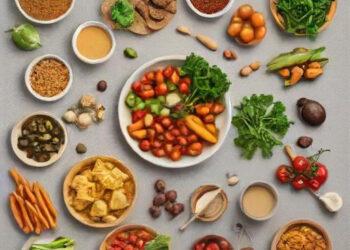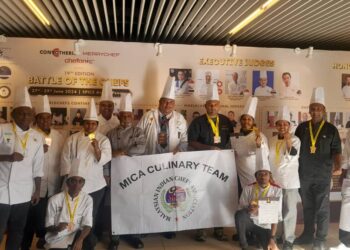-Sundeep Nair
Food safety is everyone’s business. While the entire nation is gearing up for the new normal, the restaurants across the nation are pulling up their sleeves working hard ensuring not just pleasant, but a safe experience for the guests from June 8.
 Even while you are reading my column, almost one among ten people in the world who consume unsafe or contaminated food fall ill. When food is not safe, the food supply chain has become more complex. A minor adverse food safety incident has a negative impact on public health, trade, and the overall economy. Yet, food safety is regularly taken for granted. It is often invisible until you get food poisoning. Unsafe food (containing harmful bacteria, viruses, parasites, or chemical substances) causes more than 200 diseases – ranging from diarrhea to cancer.
Even while you are reading my column, almost one among ten people in the world who consume unsafe or contaminated food fall ill. When food is not safe, the food supply chain has become more complex. A minor adverse food safety incident has a negative impact on public health, trade, and the overall economy. Yet, food safety is regularly taken for granted. It is often invisible until you get food poisoning. Unsafe food (containing harmful bacteria, viruses, parasites, or chemical substances) causes more than 200 diseases – ranging from diarrhea to cancer.
Food safety is a shared responsibility and everyone has an important role to play to ensure food safety from ‘farm-to-fork’ including government bodies, industry producers, business operators, and consumers. Whether you produce, process, sell, or prepare food, then you have a role in keeping it safe. Everybody along the food chain is responsible for food safety including the end-users.
9 Effective Ways Hotels and Restaurants Can Ensure Food safety:
Purchase management – Procure raw materials from reliable sources and approved vendors. Encourage and support food vendors to improve food safety through awareness. Know the source of our raw materials, visit the vendor premises and check their preparation, packaging and storage practices.
Invest in training and awareness of staff – Staff members including kitchen, food servers, stewarding, and cleaning staff should undergo need-based training in food safety and personal hygiene. Need-based training means food safety based training which is intended and associated with their job responsibility. Eg: stewarding staff should be trained in the right chemical to be used in the right dilution for cleaning and sanitation in kitchens.
Follow personal hygiene – All food and beverage staff to follow good personal hygiene practices. Hand washing, usage of protective gear like hairnets, hand gloves, clean uniforms and more. Report illness if they are doubtful of any symptoms.
Cleaning and sanitation of food premises – Use the right cleaning and sanitation supplies and tools for hygiene and sanitation of kitchens and equipment/machinery. Food grade chemicals used at right dilution as per the intended usage will ensure proper and effective cleaning/sanitation and also avoid wastage of chemicals. Partnering with good chemical and hygiene vendors is an effective way to ensure this.
Good housekeeping and pest management – Integrated pest management is the solution to keep the food premises safe from pests. The usage of pest control chemicals is not only the solution. Adequate pest-proofing is the most important parameter to prevent the access of pests into the food premise. Pest proofing includes netting the windows, drains, openings, etc, installation of door closers, sealing all wall openings, etc.
Segregation/separation – To avoid cross-contamination, always separate raw and cooked/Ready to eat food items. Keep them in separate storage racks, handle them with separate utensils, cutting board knives, and more. Colour coded cutting boards, knives are recommended for easy identification between raw, cooked, veg, and non-veg foods.
Temperature and time control – Food items shall be treated under strong temperature control to ensure safety. Food to be cooked at a minimum 70C to kill all pathogens and harmful bacteria. Cooking and reheating to be done at higher temperature. Hot holding in the buffet to be done at minimum 63C for safety.
Storage practices – Food to be stored in low temperatures (chiller or freezer) to ensure safety by preventing bacterial growth. In dry stores, stock rotation FIFO (first in first out) based on expiry dates to be followed. Always check the production and expiry dates and keep a tracker of near expiry products.
Water quality and safety – Ensure water used in kitchens are of safe quality. Water potability standards to be followed as water is the main ingredient in food preparation.
(The author is a food safety and risk management expert with 15 years of experience in the food and hospitality industry. He is also a lead auditor for various safety standards. The views and opinions expressed in this article are those of the authors and do not necessarily reflect the official policy or position of ChefBharath.com or Indo Media Analysis And Wording Services (IMAWS) which owns it)







